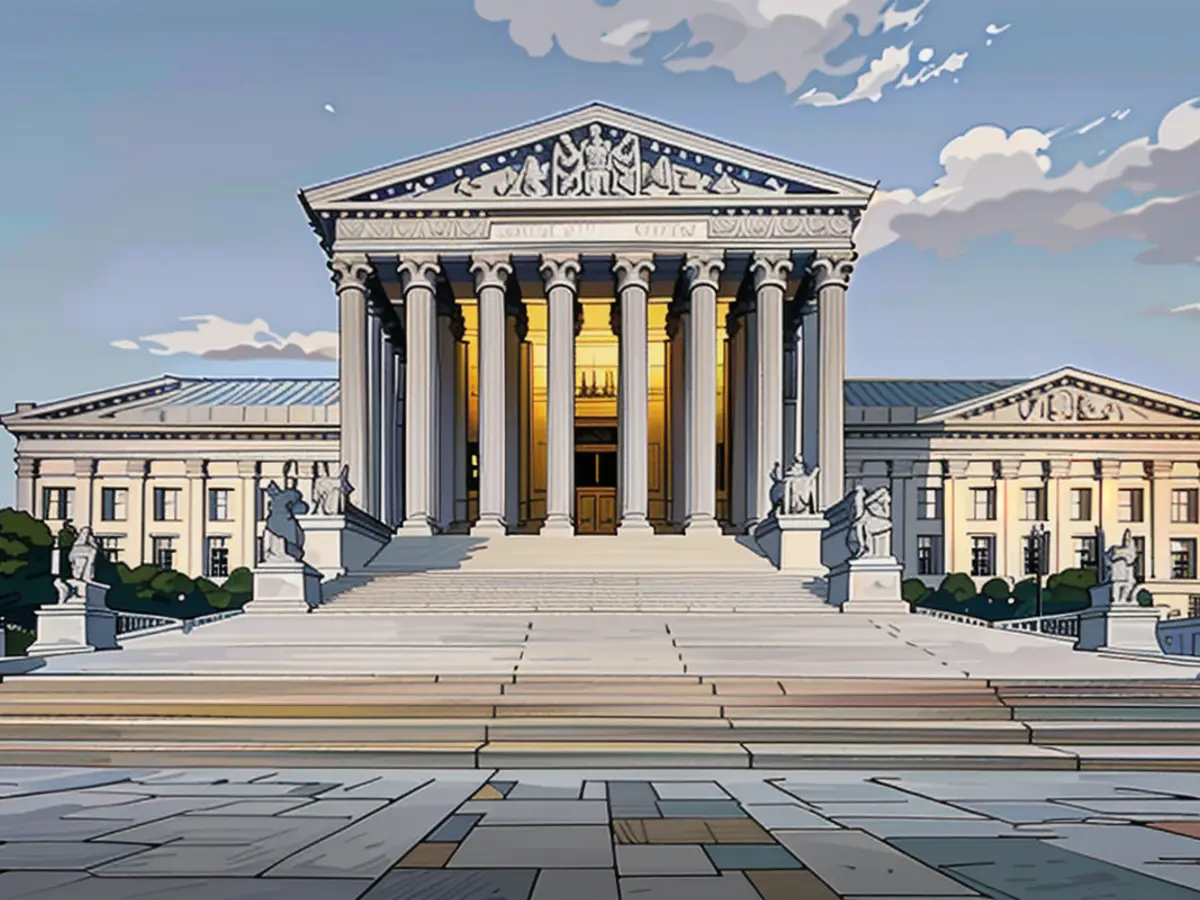Title: Unraveling the Supreme Mess: The Beneficial Ownership Reporting Saga Reaches the U.S. Court
In recent developments, the U.S. Supreme Court is currently engaged with a controversial case concerning the Beneficial Ownership Information (BOI) reporting requirements, as discussed in my earlier article, Unusual Fifth Circuit Self-Reversal Sows Confusion For BOI Reporting (Dec. 29, 2024). The ball is now in the Supreme Court's court, following a series of document filings, including the U.S. Application for Stay, the Plaintiff's Opposition to Stay, and the U.S. Reply Re Stay, all available here[1].
To comprehend the Supreme Court's potential actions, let's first examine the case's basics.
In adhering to the Corporate Transparency Act enacted by Congress, the Financial Crimes Enforcement Network (FINCEN) was tasked with implementing the BOI reporting requirements. It's crucial to acknowledge that Acts of Congress are generally presumed to be constitutional by the federal courts[2]. Additionally, courts should be cautious about issuing nationwide preliminary injunctions stopping the enforcement of an Act of Congress before determining its constitutionality[2].
However, the U.S. District Court deviated from these U.S. court policies in several significant ways:
- Failure to respect the constitutional presumption of Acts of Congress
- Lack of weighty consideration of the constitutional issues
- Entry of a nationwide preliminary injunction in a type of case where such injunctions are less favorable
The primary challenge to the Corporate Transparency Act has primarily focused on Commerce Clause grounds, as Congress aimed to address concerns arising from money laundering and financial fraud involving certain entities required to report under FINCEN's BOI rules[2]. Given the U.S. Supreme Court's tradition of interpreting the Commerce Clause matters broadly, the likelihood of the Act being deemed a valid exercise of Congress' powers is relatively high[2].
Following the District Court's initial decision, appeals made their way to the U.S. Fifth Circuit Court of Appeals, only to see the decision reversed and the nationwide preliminary injunction reinstated[3]. The Supreme Court has now taken up the case, with several amicus curiae briefs from diverse groups further enriching the case's context[4].
Given this emergency application, the Supreme Court is likely to provide a ruling promptly, so let's speculate on some likely outcomes:
Grand the Application and dissolve the nationwide preliminary injunction. With a 50% likelihood, this seems to be the most likely scenario[2]. Dissolving the injunction would bring everything back to the way they were prior to the injunction's issuance, allowing for BOI reporting to continue while the constitutional challenges are heard.
Deny the Application and uphold the nationwide preliminary injunction. This scenario is less likely, with a 40% chance, as the U.S. Supreme Court might be hesitant to unsettle the current status quo [2].
Rule on the constitutionality of the CTA as to the Commerce Clause on the merits. This outcome remains the least likely, with a 10% chance, as the Court usually favors slower percolation of cases through the circuit courts before they reach the Supreme Court [2].
It's important to remember that these speculations may be subject to change as the Supreme Court inspects the case in greater detail. Thus, pending the Supreme Court's ruling, those required to comply with BOI reporting should stay prepared to file their reports as quickly as possible.
- In the context of the ongoing case regarding the BOI reporting requirements, the Supreme Court is examining the constitutional validity of the challenge based on the Commerce Clause, as outlined in the Corporate Transparency Act.
- The Corporate Transparency Act, enacted by Congress, mandates the Financial Crimes Enforcement Network (FINCEN) to implement the BOI reporting requirements, which is in line with the presumption of Acts of Congress being constitutional by federal courts.
- The Corporate Transparency Act, aimed at addressing money laundering and financial fraud concerns, has been a subject of a nationwide preliminary injunction, a departure from typical U.S. court policies regarding Acts of Congress and nationwide injunctions.
- The Corporate Transparency Act and its BOI reporting requirements are crucial for ensuring corporate transparency, a matter that is also addressed by the Corporate Transparency Act of 2021, also known as the Corporate Transparency Act or the CTA, which is part of the broader Corporate Transparency Act (CTA) or Corporate Transparency Act of 2019 (CTA 2019).




